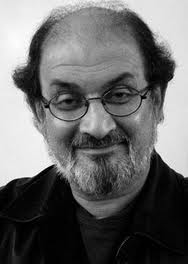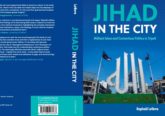 The recent controversy over Salman Rushdie’s non-appearance at the Jaipur Literary Festival has been widely understood in the stereotyped terms of a threat to the freedom of expression. The belligerence of those Muslims protesting Rushdie’s presence, of course, as well as the eagerness of some Indian authorities to humour them, was entirely reprehensible. But lost in the anodyne narrative about free expression was also the controversy’s political meaning, which I will argue had little to do either with Rushdie or indeed the offended religious sentiments of certain Muslims. Instead this celebrated author has been reduced to a kind of billboard upon which almost any cause can be advertised, and it is in this purely functional guise that he is recognized in India, whether by supporters for whom “Salman Rushdie” represents the long siege of free expression in that country, or detractors who gain visibility for a variety of unrelated agendas by threatening him. In this sense Rushdie, whose literary reputation has been in decline since The Satanic Verses, is no longer a writer at all but more like one of his own fictional characters, Gibreel Farishta to some and Mahound for others. The one thing not at issue in the Jaipur controversy was some theologically motivated attack on the freedom of expression.
The recent controversy over Salman Rushdie’s non-appearance at the Jaipur Literary Festival has been widely understood in the stereotyped terms of a threat to the freedom of expression. The belligerence of those Muslims protesting Rushdie’s presence, of course, as well as the eagerness of some Indian authorities to humour them, was entirely reprehensible. But lost in the anodyne narrative about free expression was also the controversy’s political meaning, which I will argue had little to do either with Rushdie or indeed the offended religious sentiments of certain Muslims. Instead this celebrated author has been reduced to a kind of billboard upon which almost any cause can be advertised, and it is in this purely functional guise that he is recognized in India, whether by supporters for whom “Salman Rushdie” represents the long siege of free expression in that country, or detractors who gain visibility for a variety of unrelated agendas by threatening him. In this sense Rushdie, whose literary reputation has been in decline since The Satanic Verses, is no longer a writer at all but more like one of his own fictional characters, Gibreel Farishta to some and Mahound for others. The one thing not at issue in the Jaipur controversy was some theologically motivated attack on the freedom of expression.
Of course Rushdie’s many defenders all recognize the opportunistic element in the threats levelled at him in Jaipur, tied as these were to the calculations of electoral politics in the state of Uttar Pradesh, where a number of parties are jockeying for the support of Muslim voters. This is why Rushdie’s previous appearance at the festival, in 2007, and his visits to India more generally created no stir. But instead of attending more closely to these circumstances in order to think seriously about the changing place and politics of free speech in contemporary India, its proponents have lapsed into an anachronistic narrative about circumscribing the reach of religious dogma in social life. In doing so these individuals have betrayed an attitude as “theological” as that attributed to their enemies. None have expressed a scintilla of self-doubt about this narrative or bothered to submit the position of their opponents to critical scrutiny, even as they routinely berate the latter for behaving in exactly this manner. Rushdie himself led the way here, claiming quite falsely in a television interview with the Indian journalist Barkha Dutt that the famously nationalist seminary of Deoband, whose secretary-general had sought to prevent his visit to Jaipur, was responsible for the Taliban’s emergence.
Rushdie’s defenders claim that India’s tolerance of threats against free expression has remained unchanged since 1988, when The Satanic Verses was first banned, and that this tolerance is on display today in the Indian government’s efforts to win Muslim votes. This shows a decided contempt for history. Neglecting as they do the great transformations that Indian society has undergone in the last two decades for an account in which everything is timeless, they are unable to grasp the nature even of those political circumstances making for the controversy in which they are engaged. Far from illustrating yet another example of pandering to “vote banks,” today’s politics of Muslim representation in Uttar Pradesh, but also in the country as a whole, is unprecedented in the history of independent India. For the country’s large population of impoverished and marginalized Muslims, lacking any credible leadership, stands today on the threshold of its most significant transformation since the partition of British India in 1947. Having quite understandably lost their political character with the creation of Pakistan that year, India’s Muslims have in the past half-century participated in their country’s politics mostly as self-seeking opportunists, supplicants, fixers or, at most, as the holders of a balance of power at the local level.
Today these Muslims are poised for inclusion in the vast system of reservations (positive discrimination or affirmative action in education and employment) that have in the last two decades propelled lower caste groups to political power in India. Problematic and contradictory though it is in many respects, the system of reservations nevertheless constitutes the primary way in which political integration and empowerment is now achieved in the country. It is because Muslims have not been integrated into India’s political process that they are amenable to “religious” forms of mobilization as well as militancy. Integrating Muslims by invoking caste reservations as a model, however, not only risks displacing religion as a mobilizing factor, but is already beginning to fragment this “community” along socio-economic lines, with “backward” groups preferred over “forward” ones. Attempts to create Muslim solidarity on a strictly religious basis, then, might well indicate a desire among some to forestall such an eventuality, creating media-amplified controversies like the one in Jaipur to jockey for position by in effect depoliticizing Muslims. For these forms of solidarity are invariably defensive and politically negative in nature, being incapable of proposing any vision of a future for the community. Given its lack of any popular response, however, this particular attempt seems to have failed as far as India’s Muslims are concerned.
None of this is of any concern to the defenders of free expression, who are thus unable to understand the controversy that so preoccupies them, one in which Rushdie and his writing are, strictly speaking, irrelevant. This failure of understanding, I suspect, is built into the anachronistic language of freedom of expression, which is premised upon the existence of theological and other illiberal threats directed against it. But apart from some invocations of apostasy, which lent the radical novelty of Muslim protest in 1988 a suitably medieval veneer, this was not even the case in the original “Rushdie Affair,” when the closest Muslim protestors came to a theological argument was to demand that their religion be included under Britain’s blasphemy law. In other words the only traditionally religious element of that controversy had to do with Christianity, and with the desire of Muslim immigrants to be integrated into British society. Otherwise Muslims demonstrating against Rushdie referred to their feelings of outrage at his depiction of Muhammad by using the secular language of libel, defamation and hate-speech. Even the Ayatollah Khomeini’s infamous edict made no reference to any theological point, not least because his Shiite creed gives no credence to the story of scriptural interpolation upon which Rushdie’s offending book was based.
Great writers are meant to have a privileged insight into the societies and issues they analyze, but Rushdie was alone in focusing on the religious element of the controversy that overtook him. For the weight that The Satanic Verses gave the eminently theological issue of scriptural interpolation evoked no response from his Muslim foes. These men and women were concerned instead with defending a prophet who seems to have lost his religious status and become a ward of his followers, vulnerable to attack precisely because he was no longer a theological figure but integral rather for their personal identity. Indeed one reason why even the most virulent attacks on God give rise to no upheaval in the Muslim world, something that only insults to the Prophet and his Book are capable of doing, is because the former has suffered a kind of “death” while the latter has increasingly been divested of his metaphysical attributes. Providing as it did an occasion for the first great demonstration of Islam’s globalization, the “Rushdie Affair” also signalled the breakdown of traditional metaphysics and theological modes of authority to democratize Islam, as if in a Reformation of the kind that so many critics of Muslim radicalism yearn for without realizing the violent consequences this event had for Christian Europe.
As an admirer of Rushdie’s earlier work I remember being disappointed when The Satanic Verses first came out in 1988. It wasn’t provocative enough in my eyes, being taken up with an undergraduate reading of a theological issue that had long become irrelevant in the Muslim world. I also found the book annoying because it made no attempt to address those whose beliefs it apparently dealt with, instead situating its author in a position familiar from colonial times, as the native informant there to traduce his people for the pleasure and plaudits of foreigners. Of course this did not justify threatening Rushdie with violence or even banning his book, but what I found interesting was the fact that in the course of the controversy his Muslim critics managed to forcibly insert themselves into the exclusive conversation he had set up with their religion as its subject. Unacceptable as they were, the threats against Rushdie offered him the opportunity to become a real hero in the cause of free expression. But he has never had the courage of his convictions, first voicing his contempt of Rajiv Gandhi for banning the book in a context where Indian citizens were being killed in police firing, then apologizing to the Iranian regime for writing it, only to recant once again when his contrition wasn’t deemed to go far enough.
Even in Jaipur, where there was no credible threat to Rushdie’s person, as he admitted in a television interview with Barkha Dutt, the great defender of free expression chose to stay away in order, he said, to protect others from possible violence. These are noble sentiments, no doubt, but crowds can be controlled and buildings secured, with Rushdie’s arrival in the city capable of galvanizing both the government and his supporters to face the threat they so persistently inveigh against. Was it not a risk worth taking for the cause of freedom of expression? But these apostles of the principle have always shirked displaying the kind of courage by which India’s own freedom was won, instead calling for the deployment of the state’s repressive force against their enemies. Well, they are entitled by law to such protection, but the inability to stand up for so dearly held a principle in its absence does little to inspire confidence. The only people who behaved with dignity during this sorry affair were the organizers of the Jaipur Literary Festival, who understood their duty to the organization, its sponsors, participants and audience, and in doing so realized the shallowness of the posturing over free expression that threatened to derail the event. Perhaps the refusal of any political party in the country to weigh in on this controversy, even if only to score debating points with a rival, has little to do with some absurd fear of alienating voters. It is motivated rather by the recognition of Rushdie’s anachronism in today’s India, with its many new problems and great promise for a democratic future.
I am grateful to Shruti Kapila, with whom I talked and thought this piece through.
Faisal Devji is University Reader in Modern South Asian History at St. Antony’s College, Oxford University, and the author of two books, Landscapes of the Jihad: Militancy, Morality, Modernity (Hurst, 2005), and The Terrorist in Search of Humanity: Militant Islam and Global Politics (Hurst, 2009).
This essay first appeared in Current Intelligence, an online and quarterly bulletin of current affairs, on 30 January 2012. It is republished here by kind permission of Thesiger & Company Limited.





No Comment